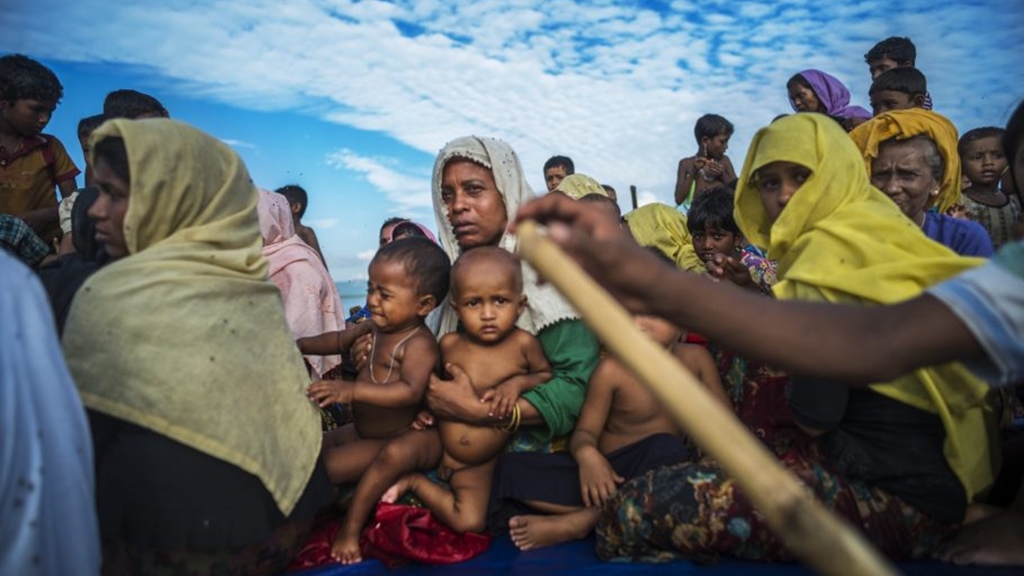
Will Facebook Finally Choose to Protect Rohingya Muslims From Further Genocide?
- 16/06/2020
- 0
CJ Werleman reports on a case being brought against the social media giant by The Gambia to uncover who was involved in Myanmar’s mass murder of its Muslim minority
There are so many legitimate reasons to hate Facebook. It not only encourages polarisation and radicalisation, the company has also engineered the platform to “exploit the human brain’s attraction to divisiveness”, which helps rake in billions of dollars in profit from nefarious political entrepreneurs, grifters and manipulators who peddle hate and sow division.
Facebook has undermined democracy and social cohesion by becoming a “hotbed of right-wing extremism”, with the lion’s share of fake news stories and disinformation campaigns targeted at those who either express conservative political sympathies or are identified as potentially persuadable to conservative political messaging. The way in which these users were targeted for manipulation by Cambridge Analytica helped Donald Trump win the presidency and arguably severed the UK from its European allies.
Trump’s 2016 digital campaign manager Brad Pascale admitted as much when he boasted: “These social platforms are all invented by very liberal people on the west and east coasts, but we figured out how to use it to push conservative values. I don’t think they though that would ever happen.”
But Facebook’s CEO Mark Zuckerberg remains hostile to implementing any measure that remedies what has become a torrential stream of dangerous misinformation and disinformation on the site he created – even when it is proven that these falsehoods are contributing to a spike in white domestic terrorism in the Global North and genocide in the Global South.
Well, ‘if the mountain won’t come to Muhammad, then Muhammad must go to the mountain’ reads the Turkish proverb and reportedly the guiding principle for lawyers acting on behalf of the African nation The Gambia, which has filed a lawsuit in the US District Court for the District of Colombia that calls on Facebook to release “all documents and communications produced, drafted, posted or published on the Facebook page” by Myanmar military officials and security forces, so that it can evaluate what role these individuals played in the mass murder and rape of the country’s Muslim minority – the Rohingya.
Read more: Facebook is Turning a Blind Eye to Users Spreading Anti-Muslim Hate
Earlier this year, The Gambia’s lawyers successfully brought a case against Myanmar at the International Court of Justice (ICJ), with judges ordering Myanmar to “take all measures within its power” to protect Rohingya Muslims from genocide. The same lawyers are now demanding Facebook release the page activity and private messages of roughly two dozen military officials, including Min Aung Hlaing, the commander-in-chief of Myanmar’s armed forces.
The Facebook posts of these officials “may constitute evidence of genocidal intent”, said the lawyers in a statement on Friday.
In 2018, the United Nations described Facebook as a vehicle for inciting “acrimony, dissension and conflict” and blamed it for driving the Rohingya Muslim genocide in Myanmar, saying that it has “turned into a beast, and not what it originally intended”.
“Facebook has been bad for Myanmar,” a Rakhine village leader told The New York Times. “Young people are using their smartphones a lot. They don’t see with their eyes; they just see with their phones.”
There is nothing contentious to the claim that nefarious actors are weaponising the social media platform against certain religious, racial and ethnic minorities. Not only has study after study affirmed that, but Facebook has also acknowledged that its platform is being used to “foment division and incite offline violence” in Myanmar and elsewhere and agreed that it “can and should do more” to stop it.
But Facebook refuses to make any substantiative changes to its platform or the way it does business, even criticising Twitter for fact-checking President Trump’s tweets.
“Facebook shouldn’t be the arbiter of truth of everything that people say online,” said Zuckerberg last month. In fact, Facebook is so against the idea of countering online disinformation that it partnered with The Daily Caller, a right-wing online blog founded by Fox News anchor Tucker Carlson that routinely pushes false stories and pro-Trump content.
Facebook’s refusal to seriously tackle the scourge of misinformation invites the further proliferation of accounts that seek to incite hatred and sow division, particularly those that operate on behalf of powerful state actors such as Russia – which, according to a US Senate Intelligence Committee, bought hundreds of thousands of dollars worth of Facebook adverts to “sway and misinform” voters with the purpose of helping Trump win in 2016.
To that end, a network of Russian-controlled Facebook accounts has also been tied to the incitement of hatred against the Rohingya in Myanmar, as reported earlier this year by Byline Times. The pages have a combined following of more than four million people and their content mirrors the Myanmar’s military hostility towards the Rohingya, even falsely accusing the Muslim minority of being “Bengali invaders”.
Read more: Is Russia Working with Myanmar’s Military to Incite Hatred of the Rohingya?
If Facebook is genuinely motivated by a desire to ensure a repeat of the Myanmar military’s 2016 genocide against the Rohingya does not happen again, then it will not only hand over evidence that Myanmar military leaders used the site to destroy the religious minority, but also reveal what role Russian or foreign-backed troll farms played in contributing to an atmosphere that made genocide possible.
Holding those responsible for carrying out genocide in Myanmar will finally help to bring justice for the Rohingya and end their decades-long persecution. It will also have a chilling effect on others who intend to use Facebook as a means to incite violence against minorities and political undesirables.
The Gambia’s challenge to the social media giant in a US court might be our best chance of encouraging the world’s largest social media platform to do more to discourage hate and persecution.






